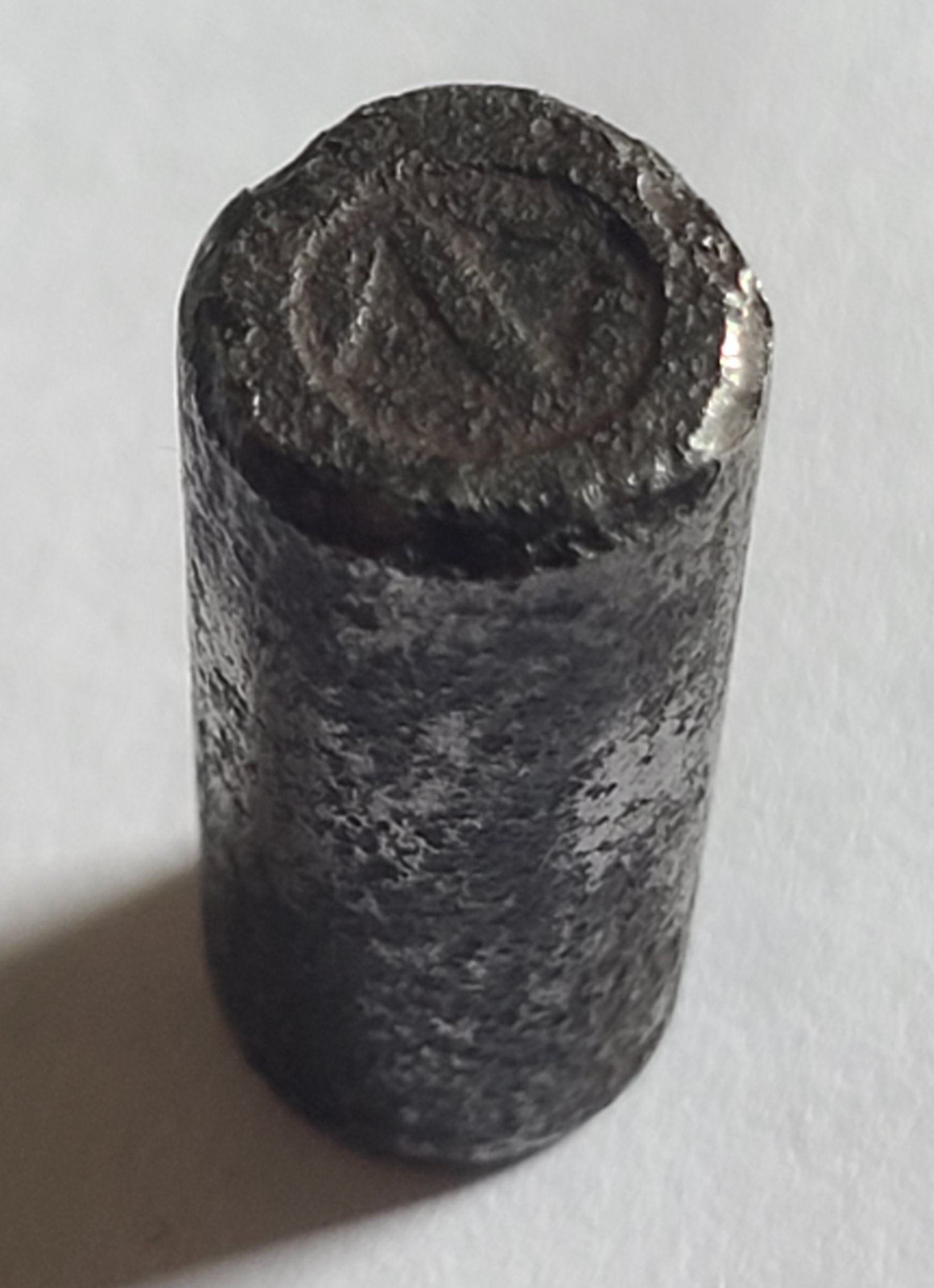No detectable amount of tritium has been found in fish samples taken from waters near the crippled Fukushima No. 1 nuclear plant, where the discharge of treated radioactive water into the sea began a month ago, the government said Monday.
Tritium was not detected in the latest sample of two olive flounders caught Sunday, the Fisheries Agency said on its website. The agency has provided almost daily updates since the start of the water release, in a bid to dispel harmful rumors both domestically and internationally about its environmental impact.
The results of the first collected samples were published Aug. 9, before the discharge of treated water from the complex commenced on Aug. 24. The water had been used to cool melted nuclear fuel at the plant but has undergone a treatment process that removes most radionuclides except tritium.
A banana naturally has has around 15 Bq of potassium 40. Assuming a volume of 100 mL, mashed bananas have around 400 Bq/L.
Currently, the treated water has around 250 Bq/L, around a fifth of mashed bananas. In other words, a banana smoothie could easily be more radioactive then the water as it was released.
The banana’s potassium 40 has a half life of more then a billion years, so it’s not going anywhere, unlike the tritium who’s amount will half every 11 years. Also, potassium is concentrated by many plants and animals, while tritium is not.
I for one would like to try this “nuclear fish”…preferably crumbed, deep fried and doused in lemon juice. With a serve of fries.
I’ll trust the nuclear scientists that say that the release is safe, but there should be a transparent international panel, including China which has concerns about the release into fishing waters, that is given access to conduct their own tests with all parties agreeing to release their findings.
china is causing a fuss for political gain. a huge chunk of their fishing practices are illegal and violates international law anyway. their concern is theatrics to drum up their anti-japanese nationalism.
deleted by creator
I’m not doubting you at all, but can you provide a link for emphasis?
It’s a pressurized water plant like Fukishima was. Not quite 3x but still more than 2. Qinshan is a CANDU reactor, so that’s why its 10 times more than what they’re annually releasing from Fukishma. They release a lot of tritium because they use heavy water as a moderator. Any nuke plant that has a Lithium channel for producing tritium for nuclear weapons will also, of course, release a lot of it comparatively.
Thank you for the link.
Candu are designed to be messy, but the Canadians keep them clean(ish) somehow, never understood how, guess they just watched how much enrichment waste they burned, or they were just careful in reclaiming the tritium, it’s expensive after all.
Is somebody preventing them from catching and testing fish?
I live in South Korea and I get really frustrated how so many people(lefties) try to make a big deal out of this to shit on Japan.
Please fucking stop smoking first before you try to talk shit about this. You sound like a complete idiot when you drink and smoke and worry about how filtered water that is probably safer than the seawater now. You’re literally paying to suck on carcinogens and radioactive shit.
You’re just political about this. Not scientific.
deleted by creator
Why do you specify lefties? Is there something unique about South Korean politics that make their left-wing reject science as much as everyone else’s right-wing?
Anti-nuclear has been mostly a left thing in the US at least despite the clean energy movement including many of the same people.
Uhh… no it hasn’t.
I’m genuinely curious why you think that’s the case.
https://en.wikipedia.org/wiki/Anti-nuclear_movement
Please read. I’m leftist, but part of that is recognizing these issues. Anti-nuclear has largely been a left thing. The right only does it to protect fossil fuels.
Same with the “not in my backyard” mentality. NIMBYs love all these new green technologies, so long as they all happen far away from them.
Korean left-wing has been constantly making conspiracies and propagandas rejecting scientific evidences.
- THAAD’s electromagnetic wave will fry people’s brain (they even made a song about it)
- Importing US beef will kill people
- US and Israel faked North Korea’s attack for political reason
List goes on and on and on…
Why do they do this?
Is their right-wing more reasonable, or even more insane?
Considering how these kind of anti-intellectuallism and nationalism is pretty much left thing in here, yeah
Cool! So let’s ramp up disposing of radioactive material into the ocean because this one fish is ok!
If their reporting of the quantity of tritium is accurate, India’s candu style plants release more incidentally than this will.
Which is what the experts have been saying since the beginning, but the anti-nuclear propagandists explicitly ignore the experts.
Precious tritium
Precious spaceship fuel
The power of the sun… in the palm of my hand
Sample size is critical to get a realistic result of the tritium toxicity. In this case, they sampled only 64 fish! That would not yield a statistically significant result!
Read the article again, moron
From the ORIGINAL article, before the 9/26 edit: “Tritium was not detected in the latest sample of two olive flounders caught Sunday, the Fisheries Agency said on its website.” Here is a link to the pre-edit article saying 2 fish: https://english.kyodonews.net/news/2023/09/c798a431682e-no-tritium-found-in-fish-1-month-after-fukushima-water-release.html
Samples of local fish have been collected at two points within a 5-km radius of the discharge outlet, except during rough weather conditions, with the agency announcing its analysis results on an almost daily basis since Aug. 26.
No tritium was detected in 64 fish, which included flounder and six other species, collected since Aug. 8.
I mean… you could have read the article.
But then they wouldn’t be able to bitch!
I mean, you are correct, it was not two fish. But is 64 fish some sort of good sample size?
Follow up question: does this type of thing accumulate in small fish and then concentrate in larger and larger fish?I don’t know the answers to those questions, as I am not a nuclear scientist. But the nuclear scientists seem to think so.
In any case, I think those are good questions. Those are the kind of good questions we get when people read the articles.
What number, in specific, would be a sample size you would accept?
I love when people tell on themselves for not knowing a thing about statistics.
Yes, it’s more than enough.
I mean, you are correct, it was not two fish. But is 64 fish some sort of good sample size?
Given the results, it is significant.
Follow up question: does this type of thing accumulate in small fish and then concentrate in larger and larger fish?
No, tritium is treated by organisms just like normal H2O, bioaccumulation is no problem.
they only sampled two fish!
Source?
Probably because the octopuses used it all for their science experiments. It’s a scientific fact that octopuses hoard tritium. Source: Spider-man 2.
Sample size: 64
Also, are there other things like Caesium-137 that pose a risk?
All that other stuff was filtered out, but the tritium is near impossible to separate, because it is chemically identical to the hydrogen in normal water.
As for caesium, there are still detectable amounts of Cs-137 in most of the word from the thousands of atomic bomb tests. It’s half life is just 30 years, but it will still be detectable for a hundred years or so because of the huge amount we released.
Not really. This video by Kyle Hill does an amazing job at explaining it.
Here is an alternative Piped link(s):
Piped is a privacy-respecting open-source alternative frontend to YouTube.
I’m open-source; check me out at GitHub.
People have been far more concerned about the efficacy of the ALPS system at extracting other contaminants than they are about tritium contamination. The ALPS system is unproven and the wastewater they’re releasing would be pretty toxic as far as other radioactive isotopes is concerned if the ALPS system isn’t doing it’s job perfectly.
The ocean is 1.335 × 10^21 litres. That number is stupid big. There are 7.5 × 10^18 grains of sand on Earth. If every person in Japan flushed a litre of the reactor water down their toilet, it would be diluted to nothing in no time at all.
ignorance and paranoia about radioactivity go hand in hand.
i know so many otherwise smart people who lose it on this issue. because they just think any radioactivity = destroy planet forever . completely ignorant to how it actually works, and just think every power plant must eventually chernobyl and that one barrel of nuclear waste is enough to destroy 1000s of miles or something equally absurd.
totally sad.
I think most reasonable objections to this were that they would be unable to filter out the actual bioaccumulating radioisotopes from the water and it should’ve been kept in retention. In the end you either trust they will or not. I trust they will.
Water eats beta- and even alpha particles in a small radius. Ionized water even more so.
The sea is vast. A pond is but a drop to the sea.
It wasn’t a decision to be taken lightly, but it was a good gamble.
Nobody’s particularly concerned about the actual radiation of the tritium. It’s just that it is actively picked up by your body and used like any other water with the same biological half life of water at 7 days. It can cause some problems in that time. It’s not really a problem of it getting integrated into anything, since all it’ll do is knock itself off of and destroy whatever it gets incorporated into when it decays.
I don’t understand why people think concentrating it and keeping large quantities on-site is preferable to heavily diluting and releasing it. A giant vat of radioactive water sounds like another disaster waiting to happen.
Because they don’t believe that they’ve removed the heavy metals that end up in the food web and sitting in the littoral area seabed until it’s picked up by lifeforms again. Tritium dilutes, but fission products do not.
Yeah they talk about nuclear waste and how it needs to be stored for so long, without recognizing that fossil fuels spew their waste, including radiation, directly into the atmosphere, where it is causing apocalyptic global warming. Having it in barrels is actually a big plus.
Yet one litre of oil can contaminate over a million litres of water.
I talked about how water released are usually modeled and risk assessments done in another comment abour the pending release a few weeks ago but I can’t find it.
While I can’t speak for all regulatory bodies, and you could be a shitass and release toxic crap without doing a risk assesmsent, it’s very unlikely that this is the case here, particularly because it’s TREATED water that’s being released. That means they have a treatment system (there’s a fucking rabbit hole and half…) which they are using to treat the water to some acceptable criteria/standard. This mean some sort of modeling and risk calculation has been done otherwise they would have just gone ‘yolo pump the water into the ocean’.
Tritium isn’t toxic, it’s mildly radioactive.
Tritated water is toxic just like heavy water. You’d just have to drink a truly ridiculous amount for it to be toxic, to the point that the radiation is a much bigger problem than the toxicity.
Edit: fully tritated water is actually worse, now that I think about it. The radioactive decay will periodically knock off a hydrogen atom, which makes it very reactive. That’s not what this is though.
Water is toxic, if you drink an only mildly ridiculous amount and don’t get some salt too. I say this having been hospitalized for hyponatremia several years back, due to unwisely drinking plain water instead of anything with salts in it when sick.
Oh for sure, I’m a nurse. Heavy water/tritated water is cytotoxic like a chemotherapy drug however, vs just messing up your osmotic balance. Your proteins conformiational structure from hydrogen bonds can’t function correctly with it and you can’t replicate your DNA/RNA because of the difference in size of the hydrogen and your cells die. Starts with diarrhea, ends with death. You need like a 20% proportion of it to see those effects though, so like I said, truly ridiculous amounts of tritated water. More than the entirety that they’re releasing.
Unsurprising.
in other news water is wet
they did however find an absolute fuck tonne of microplastics.
















